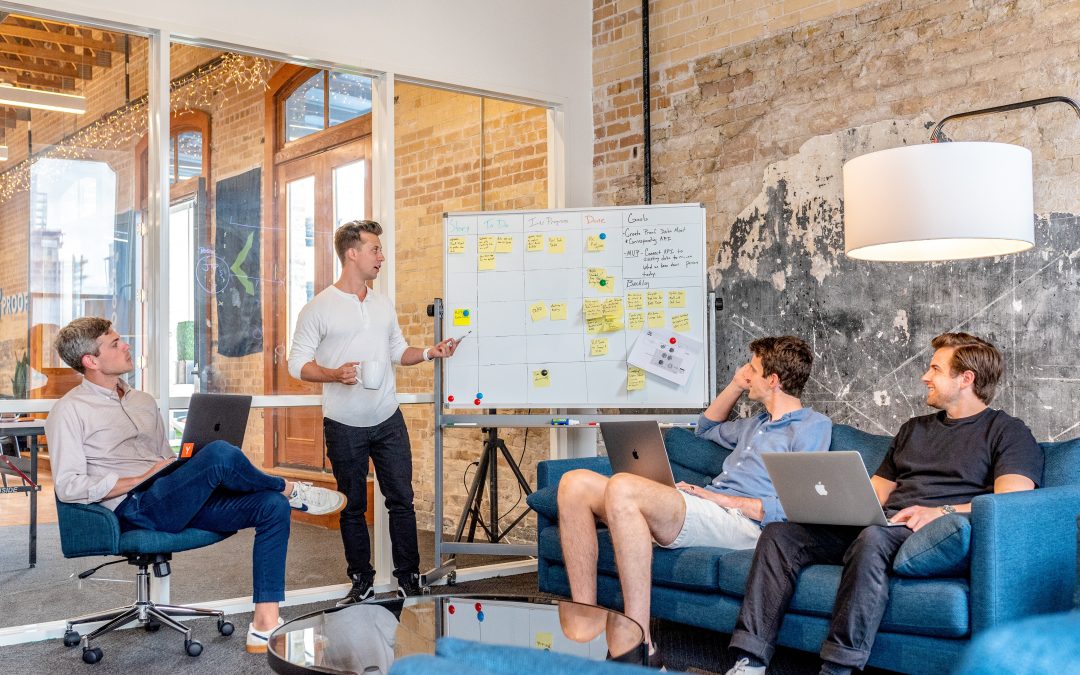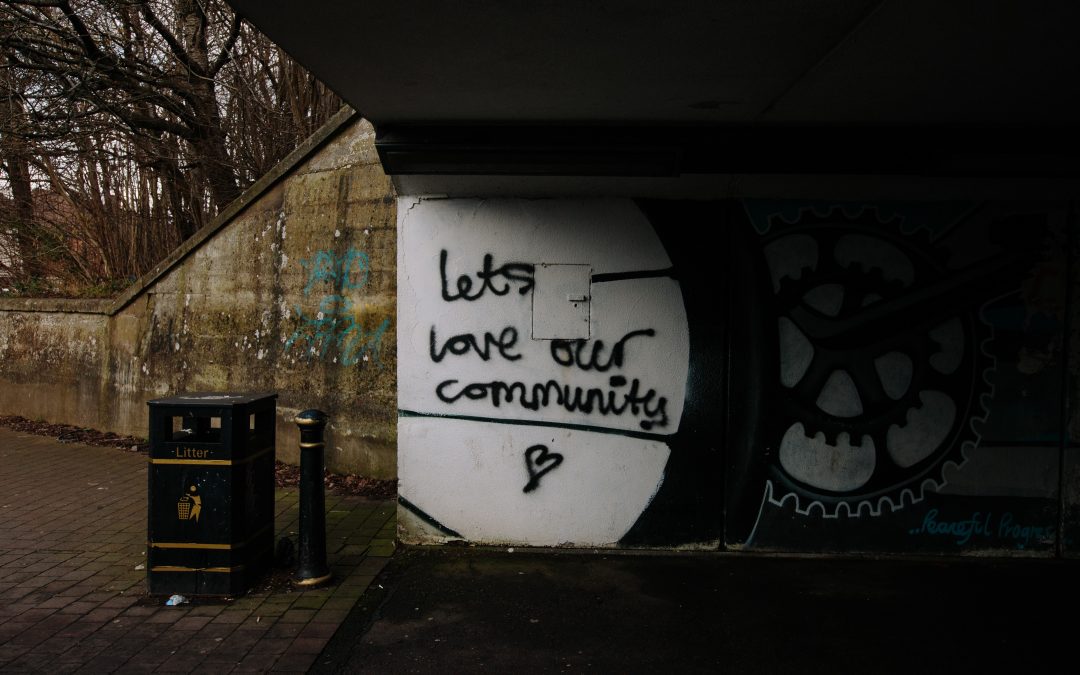
UK LUG TOUR: London
Well, the [UK LUG tour](https://jonobacon.com/uklugtour/) has kicked off, and both Ted and I will be blogging about what is going on.
It started on Monday when I picked up Ted and we returned to LUGRadio towers to record Season 3 Episode 14, which is due out on Monday. It was good fun recording it, and Nat Friedman got the monkeys treatment when he failed to show for an interview. He actually got the monkeys treatment twice as we were not recording the first time, so we called him back.
The following day we headed to Novell in Bracknell and worked there. It was great to hook up with [Roger Whittaker](https://disruptive.org.uk/) – he is a great guy and I am pleased to see him back at Novell. While at Novell we demonstrated how hot we are for laptops:
I also managed to capture a rare moment of the typically boisterous example of masculinity that is Ted Haeger, derailed into a flowery, tea drinking, pinky madness fuelled frenzy:
We later hopped on the funbus to London, ate the ultimate burger and then went to the [Greater London Linux User Group](https://www.gllug.org.uk/). They seem a really great bunch of people with a diverse range of knowledge, interests and perspective. The meeting was organised by Simon Morris who has been a longstanding LUGRadio fan, and it was great to meet him again. It was also great meet Alasdair Kergon – I always seem to bump him in London. 🙂
I gave my call-to-arms advocacy talk and Ted demonstrated his SLED wares and wowed the audience with spinning cubes, raindrops and other shennanigans. The talks seemed to be well recieved with lots of questions and some interesting discussion in the pub afterwards. Thanks to GLLUG for making it a great first stop on the tour. 🙂
Some photos from the evening:





The legend of the Chinny Raccoon
Well here we go, second time lucky… (more on this later in this blog entry)
I am pleased to see the masterful John Leach has included the mighty Chinny Raccoon on Linus’ t-shirt on the [latest Everybody Loves Eric Raymond](https://geekz.co.uk/lovesraymond/archive/vmwhere) strip. Now, I know some of you may not quite get all this chin business, and particularly why a raccoon has a big chin, so I figured I should explain.
At a conference I was asked about the chin references in LUGRadio and I figured other people may also be curious so I added it to the [chin](https://en.wikipedia.org/wiki/Chin) page on Wikipedia:
> In parts of the United Kingdom, the chin is rubbed to indicate that someone is telling a mistruth. This act is thought to originate from Jimmy Hill, a popular English footballer who is known for a long chin. Terms such as “My Chin”, “I believe you” and “Beard” are commonly used when referencing the chin as a source of falsehood.
Now, one of the terms used in this kind of language was ‘chinny reckon’ – a useful shorthand method of saying ‘my chin’ and ‘I reckon’ in the same easy to digest sentence.
While camping at [What The Hack](https://whatthehack.org/) in Holland with Aq, Adam, Bill and some other guys, we were showcasing our appalling GIMP skills and creating some chin related imagery. All of this was performed in the beer tent to great amusement. So, switch on the music from Tony Hart’s gallery and look at these fine specimens:

Here we have Bill’s effort at a fine bottle of Gin. Next up is my version of [Chitty Chitty Hang Bang](https://www.imdb.com/title/tt0062803/):

After Aq’s major disappointment when the GIMP crashed and he lost his Shakespeare mock-up, he crafted another fine quality drink bottle:

Next, I knocked up a picture of Chin Chin and Snowy:

And finally, while realising that ‘chinny reckon’ sounded rather similar to ‘chinny raccoon’, I created our mascot in his true glory:

Never before has a raccoon caused so much pleasure, and he now adorns the mobile phones of all the LUGRadio presenters. He also appeared on the big screen at What The Hack, to our amusement.
## Autosaving should be switched on
So, what was that nonsense at the start about ‘second time lucky’? Well, while writing this blog entry in GEdit, the damn thing crashed and I was faced with the hope that some kind of Autosave feature would have saved my scribe of wisdom and truth. Well, it appears GEdit *does* have an Autosave feature, but it is not turned on by default. Why on earth not? Surely the whole point of Autosave is to save users from losing work * the same users who need these kind of backup features? I can see no reason why this needs to be manually switched on. Ideally, the next time GEdit is started after a crash, I should be asked if I want to recover the document, just like in OpenOffice.org.
In many ways this kind of functionality should be available to all GNOME applications and not be implemented on the application side and it may be worth considering for the next release of GNOME. If I knew that all my applications had this recovery mechanism, I am sure it would make users feel more comfortable about their desktop. This is the same feeling when you know you can hammer the X icon on the window border a few times and close an application that is not performing. This kind of get-out consistency is a good thing.

On mobile phone design…
Today I sat in a talk about Windows Mobile, and the way that Microsoft are making mobile devices more flexible and usable for a variety of different purposes. We were shown a bunch of demos of applications running on the devices, interface improvements and there was lots of discussion about where they are heading. Like every other session at this summit, the presenter was very keen to solicit feedback about their work and where they are going. So, I chipped in.
Personally, I think pretty much every mobile phone based device sucks when it comes to user interface. Over the years I have been wooed by the relative merits of Palms, Nokia phones, Handsprings, iPaqs, Zaurii (is that plural for Zaurus + 1?) etc. Now, PDAs are really marketed as mini computers that are built to run applications, but mobile phones are a different beast – they are by their very nature, consumer items, and carry with them the expectations of the consumer industry.
Part of the problem is that mobile phones are positioned around the concept of applications and not content. When you use Windows Mobile and you want to read email, you need to open Outlook. When you want to write some text down, you need to load Word. When you want to listen to a song, you need to load Windows Media Player. Why? When accessing this kind of content on a consumer device, why on earth should I need to access an application? The problem is that this concept is entirely inconsistent. If I want to phone someone, I don’t load Microsoft Dial, when I want to send a text message, I don’t load Microsoft Gr8txt – in these scenarios I just access the functionality directly. The problem is that Microsoft are applying the thick client application approach to mobile devices, and moving away from the concept that devices are just devices, and software is merely ‘stuff that makes the devices work’.
These devices are fundamentally ‘objects that do something’. They are most typically objects that are designed to achieve a particular purpose, and although the functionality varies on these devices, the scope of their functionality is usually limited. If I worked for a mobile phone software company I would totally switch this viewpoint. I would make content and people the top level objects, and surround this content with applications that allow you to do interesting things with that content within the context of a mobile device. Content needs to be the focus. As an example, I would really optimise simplified data input, voice to text conversion and data reading. People just don’t create complex documents on mobile phones – they are a horrific pain in the arse to use for anything beyond a couple of lines. People do however read documents on mobile phones, and people do need to communicate in simple textual ways. With this in mind, I would dedicate the research dollars to better user input rather than making Microsoft Office work on a mobile phone.
The problem with Windows Mobile is that it has been subjected to the typical Microsoft approach to usability. The thing looks, feels and operates like Windows, and it feels like a cut down PDA without a keyboard. This is the wrong direction. Microsoft need to develop their software so that it doesn’t feel like software, and instead feels like an integrated device. There was a lot of discussion in the presentation about how they try to improve the user experience, and are working to maximise screen real estate and such. At one point in the presentation, the Technorati founder and I were joined in a two pronged attack on their flagrant waste of screen real estate. A good example of this was their email client. We were told how the client automatically cuts out all the headers from the email and focusses on the content (which is good), but they made a step in the wrong direction by making the To, Subject and Attachments lines each use two lines with lots of whitespace on the right side of the screen – these three areas took up *half* the screen. This left half the screen for writing the email, and provided about 20 words worth of space. This is an insane use of screen real estate. If I was using this device, once I have entered the To and Subject lines, why do I need to see them while entering the text? Simple interface swapping would solve this problem and make the interface much clearer and more flexible.
Windows Mobile (and mobile phone software in general) needs to become more integrated and discoverable. Computers by their very nature complex beasts, and you need to understand the lingo associated with them. Windows Mobile really does just look like a cut down Windows XP, and steps away from the device construct. Compare this your microwave, your video recorder, you burglar alarm and even your iPod. The iPod is a great example of the software driving the device – you just never ever think of the iPod software as an Operating System with as bunch of applications. You just do what you want to do and it happens.

Planet Advocacy and…advocacy
As some of you will be aware, I run [Planet Advocacy](https://planetadvocacy.jonobacon.com/), and you can read the combined wisdom of Linux advocates including Reverend Ted, Benjamin Mako Hill, Dave Neary, Zak Greant and others. Tim Joyce mailed me to be added to the site, and he is now on there, and it made me think that we need some more of you Open Source advocating nutters on there. So, consider this a formal invitation – if you blog about how to get more people using Open Source, let me know and lets get more and more interesting content on Planet Advocacy.
In related advocacy ramblings, the good people over at [Nottingham LUG](https://www.nottingham.lug.org.uk/) videod my *On the Front Line: Convincing People the Inconvincible* talk, and you can go and see it [here for the main talk](https://www.archive.org/download/NLUG-Jono-Talk-05-Apr-2006/NLUG-Jono-Talk-05-Apr-2006-without-QnA.avi) and [here for the Q and A session](https://www.archive.org/download/NLUG-Jono-Talk-05-Apr-2006/NLUG-Jono-Talk-05-Apr-2006-QnA-only.avi). You can also see photos from the event on [Barbie’s site](https://birmingham.pm.org/album/105) and as well as [Michael Erskine’s page](https://www.nottingham.lug.org.uk/talk-060405-jono/).
So, make a difference right now. We need more and more people to help out doing good, balanced, objective Open Source advocacy – it really helps to push the Open Source message.
—–

Microsoft Summit Day 1
Well, here I am in Seattle. After hours of travelling and virtually no sleep over the last two days, I am finally checked in having attended my first day at the Microsoft Technical Summit. This is a three day conference in which an invited audience are put in the same room as prominant Microsoft bods to provide feedback, opinions and thoughts. These kind of conferences are interesting, particularly for someone such as myself who spends his days pushing competing technology. I think there is lots for us all to learn.
## OSS Watch Conference
This all kicked off on Monday when I travelled down to Oxford to speak at the [OSS Watch Conference](https://www.oss-watch.ac.uk/events/2006-04-10-12/). The talk I gave was *The Open Source Reality Check* and it seemed to go down fairly well. The conference was an interesting one to speak at as there was a real mix of visitors and experience. This comprised of academics, businesses, technical people and more. There was an interesting array of questions after the talk, and the continued discussion over tea and coffee was also interesting. It is always great to talk these issues over with people, and there is still so much to learn from everyones experience and views.
After the conference I jumped on a train and headed down to Heathrow. It was then seven hours or so to Newark, and into a Holiday Inn at the airport. After about three hours sleep, I was up at at 4.30am for a shower and off to the airport. I ate some questionable breakfast (I have no idea what half of it was) and then it was off to Seattle. Five hours later I jumped in a taxi and headed straight to Redmond, tired but intrigued to get started with the event.
## Microsoft Technical Summit: Day 1
The Microsoft Campus at Redmond is huge. Really, really huge. Despite its obvious size, the thing that really strikes you is how comfortable it is. Redmond is a very laid back, loose and inspired place. It must be a pretty interesting location to work at, particularly if you are a hack-by-the-seat-of-your-pants developer with a taste for Mountain Dew.
Today there were a number of interesting talks, including Bill Hilf talking about Open Source, Rick Rashid talking about Microsoft Research and Don Box talking about Windows application messaging. Each of these talks happened in a single track in a room attended by around 50 or so people. The people attending are a combination of developers, competitors and system architects.
Bill Hilf gave a great session, predominantly dominated by Q and A. I like Bill Hilf – he provides a refreshingly honest perspective. There were a number of occasions when he would pass his own opinion and sometimes he simply confessed to not knowing the answer about something. The content covered a number of areas, and Open Document Format and OpenXML triggered a lot of discussion. There was also an interesting debate between Bill and Brian Behlendorf about ODF and patents. I think part of the problem with the perception of OpenXML is that Microsoft have taken their usual approach of developing an all encompassing standard in-house which should then be accepted by others. Openness doesn’t work this way – if a technology is designed to encourage open adoption, there needs to be a public consultation process. Now, I am not entirely convinced that Microsoft intend OpenXML in this way – I suspect they are primarily intending for it to be an open standard from the user’s standpoint. The other point to bear in mind, and one that was covered in the session, is that Microsoft have a long legacy of software and versions that the format needs to support, and ODF does not even come close. But, this is part of the problem – instead of stepping to the side and improving ODF or developing an open format in conjunction with other organisations (akin to HTML), the in-house approach seems to be used. I do understand why Microsoft have taken this method, but it does not really fit in with the concept of openness. Don’t get me wrong, I don’t think ODF is perfect either – ODF needs to become much more than Sun and IBM. There is just way to much politics here; IBM and Sun don’t trust OpenXML because of Microsoft, and Microsoft don’t trust ODF because of IBM and Sun. We need a community driven, collaborative foundation with support from all of the above. Then again, I need my bank account to be flowing with millions, and that ain’t gonna happen either.
Rick Rashid is the head honcho of Microsoft Research and gave a stunning talk. Microsoft Research are doing some deeply, deeply cool things, and the technology they are working on includes, but is not limited to all the Minority Report wizardry showcases around the web. A particularly impressive example of this other research was how they can pull an object out of a regular image. As an example, he showed a picture of a dog in front of a tree, and the software could pull the dog out and faithfully replace the area behind the dog in the image. Interestingly, this kind of research is deployable to most people and has an obvious consumer benefit; the research is not just pie in the sky kind of things. He also stated that their research efforts are often linked around the future costs of IT. As an example, he told us that LCD panels will be cheaper to produce in the future than whiteboards. This naturally means LCDs can be used for this research technology. There was also lots of demos of interactive projection – such as projecting an interface on a table and being able to interact with it in different ways. I have taken away a lot of thoughts about this which I plan to write up in more detail later.
Don Box gave an interesting talk about messaging in Windows. Although I only understood about 20% of what he was going on about, I really enjoyed his fun and personable style. Like Bill Hilf, he was honest and down to earth, and it made for an interesting talk. Not much to say; remember, I only understood about 20% of it. 😛
Afterwards we took a trip to the Microsoft Museam for some drinks and food and then off to the hotel. I am now going to get some much needed sleep. I can already feel it setting in…

Nottingham LUG and Jokosher
Wow, busy day yestersay. Got into work pretty early and did a seminar on building dynamic websites with PHP and MySQL. Reasonable turnout for 9am and lots of interesting questions. I then spent much of the day preparing for my talk in Oxford next week and finishing up chunks of work here and there.
At about 4.30pm I grabbed a sarnie from Subway and headed off to Nottingham to speak at [Nottingham Linux User Group](https://www.nottingham.lug.org.uk/). Now, I have only ever been to Nottingham twice before, and never been to their LUG, so I was quite intrigued to see what it was like. After navigating Nottingham’s insane one-way system, I found the pub, parked and went in. There were already a bunch of people there, including the gents from [Birmingham.PM](https://birmingham.pm.org/).
Nottingham LUG are a really nice bunch of people. I found them really down to earth, good fun and interesting. The talk I gave was *On the Front Line: Convincing People the Inconvincible*; the advocacy talk I have been giving around the country. It was nice to see that Nottingham LUG were a responsive audience, and delivering the talk was great fun. As far as I am concerned, talks should be interactive things – people should shout out comments, jokes and generally take part. In addition to this, its always nice to present to a group with a good sense of humour. I always like to throw some gags into my presentations, and it was nice to see Nottingham LUG have a humour about them.
The questions that rolled in after the talk were the most interesting and varied that I have had yet at a LUG when performing this one.
Incidentally, I also met Bruce Campbell there:
Amazing. 🙂
## Jokosher
The [Jokosher](https://jokosher.org/) steam train is continuing to power forward and the audio engine is now in there. Thanks must go to [Mike](https://blog.mikeasoft.com/category/development) for his great work on integrating it. In addition to stock GStreamer, we are also using [Gnonlin](https://gnonlin.sourceforge.net/) to help with the non-linear nature of the application. The other day I was poking around Gnonlin and trying to figure out how it all works. It seems quite nice. It is basically a bunch of GStreamer plug-ins that help writing applications such as Jokosher. As an example, you can specify an audio file type, and Gnonlin will automatically figure out the suitable plug-ins needed and construct it for you. See [this page](https://jokosher.org/trac/wiki/GnonlinNotes) for some details about using Gnonlin with the GStreamer Python bindings. With this integration, Jokosher should pretty much record and play back. The next step is hooking in the editing events and the mixer to make it happen.
In addition to this, Mike has been thinking of how we can support multiple-input sound cards. He discovered there is not really a simple solution to this problem in GStreamer, so he has hacked together a GStreamer plug-in to solve the problem. The rather snappily titled `gst-chansplit` lives [here](https://jokosher.org/trac/browser/gst-chansplit). Hopefully this will be included in the stock GStreamer plug-ins packages.
One potential problem that has been standing in the way of Jokosher on Dapper has been a rather nasty recording bug. You can get the lowdown on this bug [here on Launchpad](https://launchpad.net/distros/ubuntu/+source/gst-plugins/+bug/34597) and [here on the GNOME bugzilla](https://bugzilla.gnome.org//show_bug.cgi?id=336614). If this bug is not fixed before Dapper ships, recording audio on Dapper will be a problem for a *lot* of people. With this affecting more and more people, it must have risen up to the attention of some of the developers. Peckisk just announced this on IRC:
> since it was hanging in some alsa ringbuffer state it might be that patch, will try to compile without…
> yup, i was right 10_audiosink-lockup.patch is causing the problems, seb128 is looking into that now
Awesome. We *really* need this fixing.

Coming to a town near you


Schnoogans
Well, all evening slots on the [UK Tour](https://archivedblog.jonobacon.com/uklugtour/) are now filled. We do however still have some daytime slots available. The week of April 17th is half-term for students, so if you run a University computer society it may of interest to run an event. If you can get an audience in front of us, we can get there. If you are interested in running a daytime event, [drop me a mail](mailto:jono AT jonobacon DOT org).
Also, the [PHP West Midlands User Group](https://www.phpwm.org/) will be holding the very first meeting on Thu May 11th. If you are interested in popping along, go and register on [this](https://www.openadvantage.org/events/oaevent.2006-04-03.9526142177/view?searchterm=None) page. The meeting will take place at the [OpenAdvantage](https://www.openadvantage.org/) offices in Birmingham.
—–

My stomach can be an enemy sometimes
The last few days have been populated by the rather unpleasant output of a stomach bug. It was not nice, and I am not not going to share the ghastly details with you. Suffice to say, it was ghastly.
Thanks very much to all of you who mailed in asking for a place on the [UK LUG tour](https://archivedblog.jonobacon.com/uklugtour/). I am in the process of figuring out the lay of the land and I will be hopefully announcing a final schedule fairly soon. In the meantime, I will be taking a trip up the M6 to Nottingham on Wednesday 5th April to do a talk at [Nottingham LUG](https://www.nottingham.lug.org.uk/). I they seem like a fun bunch, and I am looking forward to meeting them – I was also told by Michael that I will even have my very own car parking space. Nice. There will also be some of the [Birmingham Perl Mingers](https://birmingham.pm.org/) there. On Wednesday this week I did a talk at their Technical Meeting and it was fun.
In related news, I will be flying out to Seattle in a few weeks to take part in what many of you may think of a fairly unlikely conference for an Open Source guy. A while back Microsoft invited me to participate in their Microsoft Technology Summit at Redmond. I thought this would be a fascinating event to participate in, and confirmed my interest to attend. From what I have been told, the summit aims to bring different people together to discuss how Microsoft approach technology, standardisation and other issues. I will out there for four days and I am looking forward to some interesting and challenging discussion. As a speaker, I spend the majority of my time speaking at groups and conferences that sympathise with the Open Source ethos, and I am looking forward to visiting a conference in which I can speak with a different crowd of people with different opinions, ideals and perspectives. As usual, if there is anyone in that part of the world who wants to meet up for a beer, let me know.

Fight! UK LUG Tour

For the week of the 17th April 2006, [Ted Haegar](https://reverendted.blogspot.com/) from Novell USA and myself plan to tour the UK visiting LUGs and doing talks. This is entirely free and supported by our rather cool employers [Novell](https://www.novell.com/) and [OpenAdvantage](https://www.openadvantage.org/).
Want to know more? Check out the [awesome promo MP3](https://jonobacon.com/uklugtour/fight-uklugtour-promo.mp3) that Ted had recorded for the tour.
So, if you are in a LUG in the UK and want us to stop off at your LUG, [get in touch with me](mailto:[email protected]) as soon as possible. There are only limited slots available, so get in quick. This tour is entirely free – if you provide an audience, we will be there.
For more details, see the [tour web page](https://archivedblog.jonobacon.com/uklugtour/)
